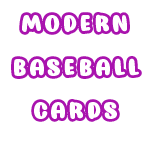The world of collectibles can often feel like a magical treasure hunt where treasures from the past find their way back into the limelight. That’s certainly the case with Wacky Packages, the series of parody stickers that delighted children and frustrated brands back in the day. These entertaining, humor-infused collectibles recently reached a jaw-dropping milestone at a Heritage Auctions event, where an unopened box of the 1967 Wacky Packages fetched a staggering $79,300. This sale doesn’t just mark a dreamy payday for the seller, but it also pushes the envelope in the non-sports collectibles market, setting a benchmark that reflects a profound cultural nostalgia.
Born in a time when satire wove its way into everyday life, Wacky Packages first hit the shelves in 1967, courtesy of the legendary trading card company Topps. Their cheeky take on household brands quickly caught the public’s fancy. With a style reminiscent of early slapstick cartoons, these punch-out cards mocked mainstream products, transforming earnest brand names into laugh-out-loud parodies. A loaf of sliced bread might become “Bread Crumble” or a box of detergent could whimsically turn into “Dirty-Clean.” Such was their charm that even adults couldn’t help but chuckle at the clever carnivals on cardboard.
But the fledgling parody series wasn’t all fun and games. It sparked enough ire from the firms it parodied that a dozen cards had to be swapped from the original lineup. Brands such as Ritz crackers, Jolly Green Giant vegetables, Morton Salt, and 7-Up weren’t amused by their satirical alter egos infiltrating schoolyards and dinner tables. However, Topps, like any great production, took this drama in its stride and used it as a launching point for future success. They eventually expanded the cards into a new format in 1969, returning stronger than ever in 1973 with stickers that could be peeled and stuck—perfect for livening up school lockers or bedroom walls.
The artistically inclined might note that the early illustrations were by none other than Art Spiegelman. Before he became celebrated for his poignant Pulitzer Prize-winning graphic novel “Maus,” Spiegelman had a hand in bringing these irreverent illustrations to life. His work not only contributed significantly to the cards’ initial popularity but also imbued them with a certain illustrative pedigree that history has come to treasure.
Over time, these funny little jabs at commercialism became a sensation rivalling even baseball cards in the playground economy. But as with so many trends of yesteryear, Wacky Packages went through their own phases of popularity. They took a break from the market between 1992 and 2004, only to return with aplomb, eager to both charm new audiences and satisfy long-standing fans who cherished them for their whimsical wittiness and nostalgia.
Fast forward to October 2023, and these boxes of delight are being recognized as significant pieces of pop culture history. The recent record-breaking auction price isn’t an isolated incident but rather a reflection of growing interest in such vintage non-sports memorabilia. These collectibles are swept along by the powerful currents of nostalgia, which is as potent now as it ever was. A longing for tangible bits of our past has seen an increasing number of collectors willing to pay premium prices for unopened boxes and rare cards.
This trend of rising prices and soaring demand isn’t just about monetary value; it mirrors an appreciation for the art, humor, and society that shaped these pieces. Collectors are keenly aware that each Wacky Package is a humorous, satirical time capsule of mid-century American advertising culture, offering a glimpse at the societal fibers that wove everyday commerce into the fabric of 20th-century life.
In a world where art, commerce, and nostalgia coalesce, Wacky Packages are enjoying a renaissance as an emblem of past times. Unopened boxes such as the one recently auctioned hold dual significance—they are both a rare peek into a quirky past and an investment that appreciates not just in dollar terms, but in cherished memories. As these small cards prove, sometimes, the most meaningful treasures don’t need to be meritorious of great riches. They just need to make us laugh, reminisce, and wonder at the world’s whimsy.
